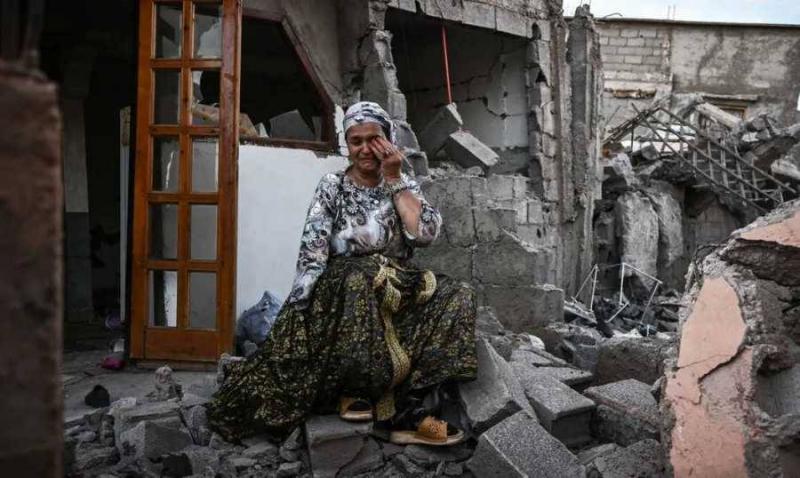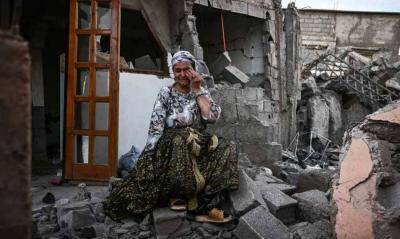Moroccan rescue workers race against time, supported by foreign teams, to find survivors and assist hundreds of homeless people whose homes were destroyed by the disaster that left 2,862 dead and 2,562 injured. While awaiting the deployment of foreign rescue teams on the ground, Moroccan authorities have begun setting up tents in the High Atlas mountains where entire villages were devastated by the earthquake.
Paramedics, volunteers, and military personnel are working to locate survivors and retrieve bodies from under the rubble, particularly in the villages of the Al-Haouz region, the epicenter of the earthquake south of the tourism city of Marrakech. Hopes are dwindling as the three days following any earthquake are critical for rescuing those trapped beneath the debris.
After an initial response described by some survivors as exceedingly slow, search and rescue efforts appeared to accelerate on Monday, with tents set up in some areas where people had spent three nights outdoors. A video clip from Morocco's second television channel showed a military helicopter flying over an area near the earthquake's center and dropping essential supply packs for isolated families. Since most affected areas are hard to access, authorities have not provided any estimates of the number of people still missing.
**Heritage Damage**
Due to blocked or rock-fallen roads, reaching the most affected locations has become increasingly difficult. Gradually, the damage inflicted by the earthquake on Morocco's cultural heritage is becoming apparent, with buildings in the old city of Marrakech, classified as a UNESCO World Heritage site, sustaining damage. The earthquake also caused significant harm to the historical Tinmel Mosque, dating back to the 12th century and located in a remote mountainous area near the epicenter.
The U.S. Geological Survey reported that this earthquake is the deadliest in Morocco since 1960 when a massive tremor killed at least 12,000 people and is the strongest there since at least 1900. Government spokesman Mustafa Baytas stated in a television broadcast on Sunday that all efforts are being made on the ground. The Moroccan army announced that it is bolstering search and rescue teams and providing drinking water, food, tents, and blankets.
Moroccan King Mohammed VI has not issued any statement to the nation since the disaster, while Prime Minister Aziz Akhannouch told local media that the government would compensate the victims, though he did not provide any specific details. Morocco received offers of assistance from Spain and Britain, which sent search and rescue specialists and trained dogs, as well as from the UAE and Qatar, which stated on Sunday that a search and rescue team was on its way to Morocco.
The European Union announced it would initially release one million euros (approximately $1.07 million) to non-governmental relief organizations already operating in Morocco and that it is in contact with Moroccan authorities to provide full assistance in civil protection if needed. State television reported that the government evaluated its aid needs, considering the importance of coordinating relief efforts before accepting assistance and that it might accept offers of help from other countries, coordinating them if necessary.
France and Germany downplayed the significance of Morocco's immediate rejection of their offers to provide assistance. Germany stated on Monday that it does not see indications that Morocco's decision was political, as it knows from its experience with severe floods in 2021 that coordinating aid is essential to avoid hindering each other's rescue efforts. France said on Sunday that it is ready to provide help whenever Morocco officially requests it and that any controversy over this issue is "inappropriate." Relations between Paris and Rabat have become strained in recent years, particularly concerning the Western Sahara issue, a contested region that Morocco wants France to recognize as Moroccan territory. Morocco has not had an ambassador in Paris since January.




